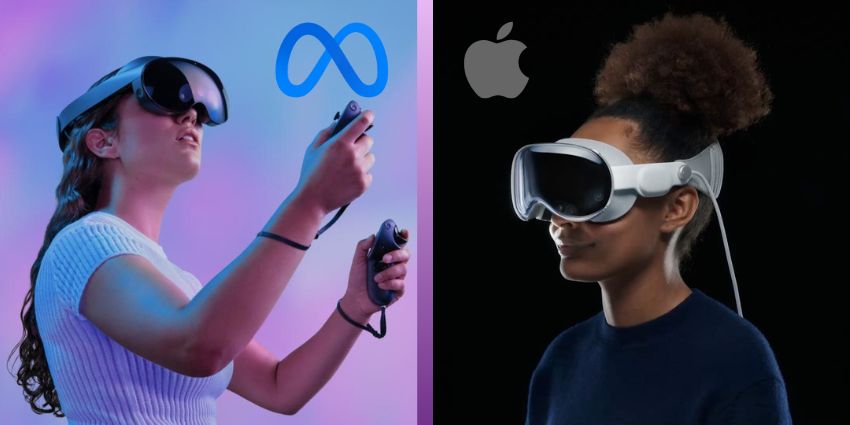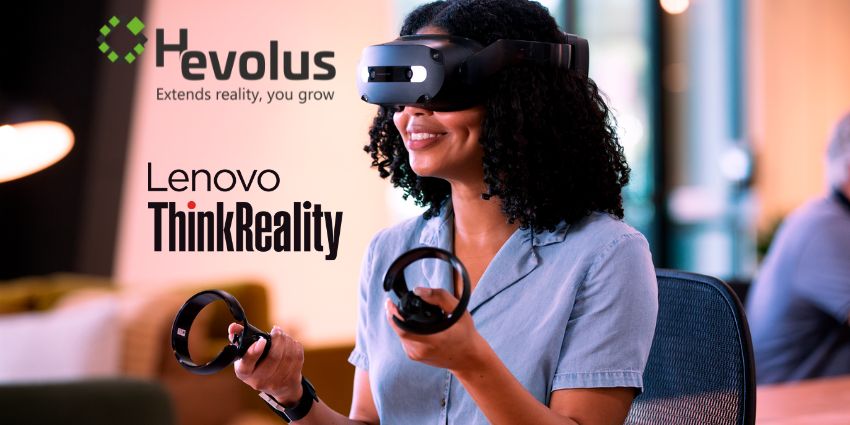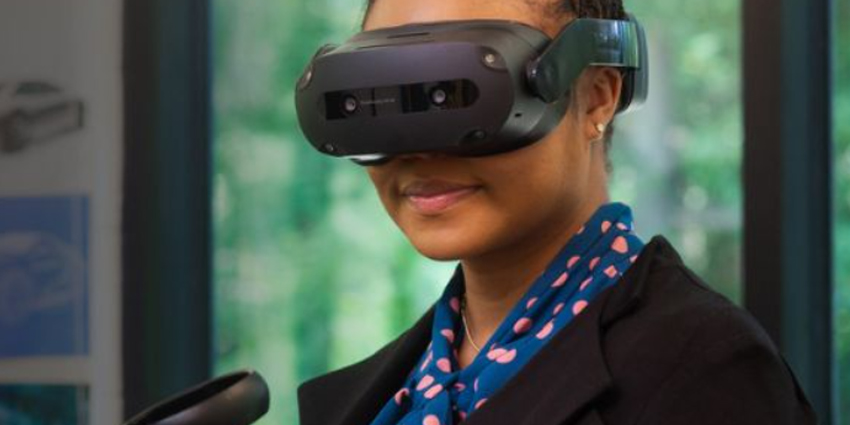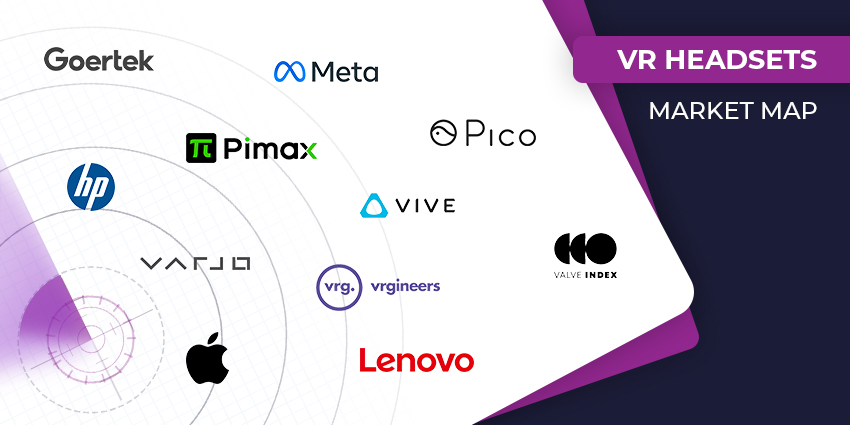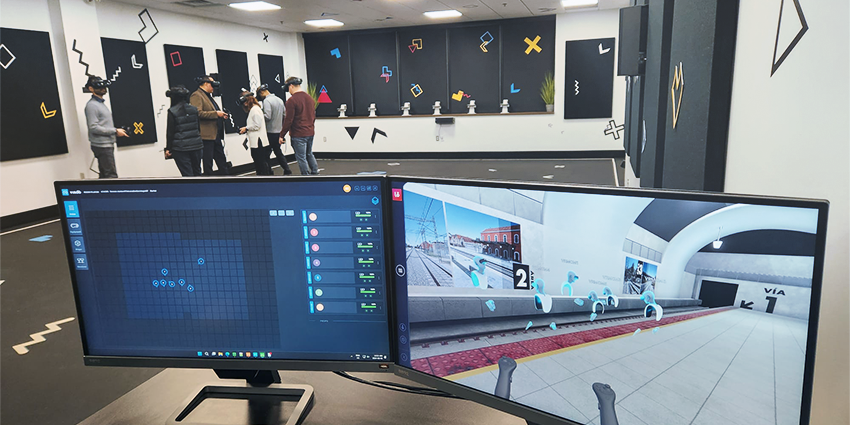The extended reality environment is taking the retail and ecommerce landscape by storm. Offering a convenient way to provide consumers with product information, enhanced shopping experiences, and better customer service, XR is quickly becoming a table stakes part of the new digital retail space.
Already, countless companies have begun experimenting with the potential XR can offer. Shopify found viewing 3D products in AR improved conversion rates by 250%, and 42% of online shoppers say they want to use XR to make transactions online feel like shopping in-store.
As the demand for these immersive experiences continues to grow, a number of leading virtual, augmented, and mixed reality vendors have begun demonstrating their ability to assist retail and ecommerce stores in building next-gen interactions. Here are just some of the leading XR vendors paving the way for a new age of shopping.
Varjo
Responsible for creating some of the world’s most advanced VR and XR headsets, Varjo has captured the attention of numerous business leaders in recent years. The company’s immersive technology is assisting businesses in building more collaborative experiences for staff, more emotional customer service interactions, and even unique hybrid retail experiences.
Varjo’s versatile collection of XR technologies makes it an excellent choice for all kinds of retail and ecommerce initiatives. For instance, the Varjo Aero headset offers a lightweight experience retailers can bring into the store environment, to help customers better understand the features and benefits of a product they may be considering buying.
Varjo’s “Reality Cloud” network is likely to be a valuable tool for many retail innovators going forward, as it will allow for more efficient lossless streaming in a traditional store space.
Magic Leap
Magic Leap has quickly emerged as one of the major market leaders in the Augmented Reality hardware environment. Introducing consumers and businesses to a new generation of smart headsets, Magic Leap allows for the convenient alignment of digital and physical experiences.
With tools specifically built for the enterprise environment, Magic Leap offers a full a range of phenomenal features and capabilities to today’s business leaders. Companies can access high-level rendering, industry-leading optics, and dynamic computing all in a lightweight and ergonomic headset. In the retail locations of tomorrow, Magic Leap technologies could even allow consumers to try on products “virtually” in a store, without the hygiene risks of changing rooms.
Magic Leap also benefits from a robust open platform, where retail and ecommerce innovators can develop applications with open-standard software.
Microsoft
In recent years, Microsoft has begun making a name for itself as perhaps the most significant innovator in the mixed reality space. The company offers not just a powerful development environment in the form of Microsoft Mesh, but also one of the most immersive “MR” headsets on the market, with the HoloLens 2.
As companies in the retail and ecommerce environment continue to look for ways to enhance customer experiences, Microsoft’s mixed reality tools could prove to be very valuable. For instance, a company selling a product to large to showcase to customers in-person could use a digital twin of that item to project a holographic image into a space. This would give consumers a true-to-life view of the size and features of the item, while reducing the need for in-person demonstrations.
Microsoft’s technology could even allow retailers in the B2B world to offer a better level of post-purchase service. Holographic agents and engineers could be digitally transported into a company’s environment whenever a client needs help troubleshooting a problem.
Meta
As one of the leading brands behind the evolution of the “Metaverse”, Meta is likely to play a massive role in the introduction of XR innovation to the retail and ecommerce sector. Already, Meta’s virtual and augmented reality investments are helping countless companies to improve their sales, and strengthen their relationship with their target audience.
For instance, companies in the ecommerce sector can use the Meta AR advertisement platform to allow customers to visualise what a product might look like in their home, using a smartphone app. Alternatively, companies looking to provide their customers with more fully immersive experiences can build applications for the Oculus VR headset. This could allow retailers to interact with clients in a digital version of a showroom or office.
As Meta continues to expand its investment into the Metaverse, we’re likely to see a host of new ecommerce and retail brands taking advantage of the environment to build new digital experiences.
Unity
Speaking of the Metaverse and the rise of new digital experiences for ecommerce companies, retail brands, and their clients, Unity is another market leader worth looking into in this evolving space. After all, retail companies hoping to build digital worlds and engage in augmented reactions with their audience will need access to the right tools for developing applications.
Unity provides users with access to a comprehensive real-time development platform, ideal for building 3D, immersive experiences. The Unity platform has already become an important tool for designing metaverse landscapes for many retailers and modern brands. Plus, the applications created with this technology well across a range of devices and environments.
Unity’s comprehensive development platform gives brands everything they need to build digital twins of their physical showrooms for the metaverse, or design VR versions of stores. The extensive documentation and guidance on the Unity platform is excellent for beginners too.
HTC VIVE
A leader in all things virtual reality, HTC Vive has established itself as perhaps the go-to choice for VR among business users. VIVE’s wide portfolio of wearable devices can serve a range of different purposes, from giving users access to on-the-go wellness tools, to immersing customers in unique virtual environments.
Though VIVE technology is most commonly used for ideation, collaboration, and internal processes today, it could still play an important role in the ecommerce and retail landscape. Businesses could use the technology to bring product development teams together wherever they are, so they come up with incredible new ideas in real-time.
The VIVE headsets could also be an excellent way for B2B retailers to give more immersive demonstrations of their products to customers, or take clients on a tour of their operating facilities before they sign a contract.


